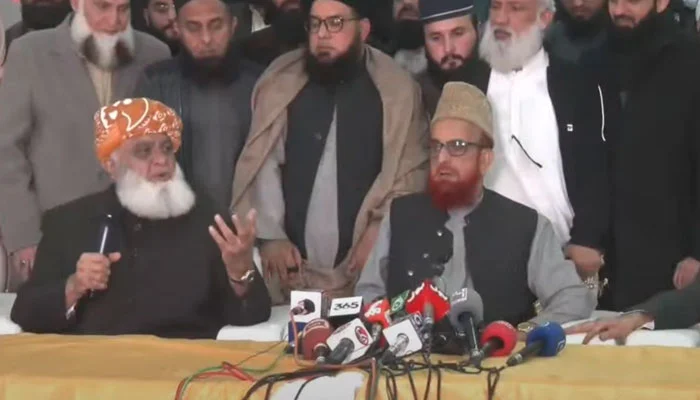Madrassa Bill
In a significant development, the Ittehad Tanzimat Madaris Deenia (ITMD), a federation of major madrassa oversight bodies, has called on the government to urgently issue a gazette notification for the Societies Registration (Amendment) Act, 2024. The ITMD made this demand during a press conference held after its supreme council meeting on Monday.
Addressing the media, ITMD leaders emphasized that the bill had been sent to the President’s House following its final approval. They stated that any objections raised by the presidency had become invalid once the constitutionally designated time for raising objections had expired.
The madrassa bill, however, has stirred controversy, particularly after President Asif Ali Zardari expressed concerns about its potential implications.
The president suggested that the bill, once enacted, might lead to the registration of madrassas under the Societies Act, potentially triggering sanctions from the Financial Action Task Force (FATF), the Generalised Scheme of Preferences Plus (GSP+), and other international entities.
Passed by both houses of parliament, the bill has become a contentious issue between the Jamiat Ulema-e-Islam (JUI-F) and the government. Its enactment was a key component of the agreement between the government and the JUI-F in exchange for supporting the 26th Amendment.
Following parliamentary approval, the bill now requires the president’s assent to become law. However, President Zardari initially returned the bill earlier this month, citing legal objections.
Under the Constitution, a bill rejected by the president must be presented in a joint session of parliament. In line with this requirement, Prime Minister Shehbaz Sharif has advised the president to convene a joint session on December 17, according to parliamentary sources.
Mufti Muneeb-ur-Rehman, speaking at a packed press conference, provided a detailed timeline of the bill’s journey. He noted that the bill was forwarded to the President’s House immediately after parliamentary approval.
The president flagged a typographical error on October 28, 2024, which was subsequently corrected and resubmitted. However, the president then raised additional objections.
Mufti Muneeb explained that the madrassa bill has already acquired legal status. “The bill has become a law since the president did not raise objections within the constitutionally allowed time frame,” he said, urging the government to immediately issue a gazette notification.
JUI-F chief Maulana Fazlur Rehman also weighed in, asserting that the bill is no longer controversial, as it has been approved by parliament. He emphasized that the government should respect the supreme council’s resolution, warning of potential repercussions if the matter is not resolved.
President Zardari raised eight objections to the bill, including concerns about its potential to foster sectarianism, undermine law and order, and negatively impact Pakistan’s international standing.
He also pointed out issues with the registration process, noting that registering multiple madrassas within the same community could lead to administrative challenges.
The Societies Registration (Amendment) Act, 2024, is an updated version of the Societies Registration Act of 1860. The legislation mandates that existing madrassas must register within six months of the bill’s enactment, while newly established madrassas must register within one year. Madrassas with multiple campuses require only a single registration.
The bill also obliges madrassas to submit annual educational and audit reports to a registrar. Under the law, a madrassa is defined as a religious institution primarily focused on imparting religious education, often with boarding and lodging facilities.
As the controversy continues, the ITMD remains firm in its stance, urging the government to expedite the notification process to prevent further escalation.


